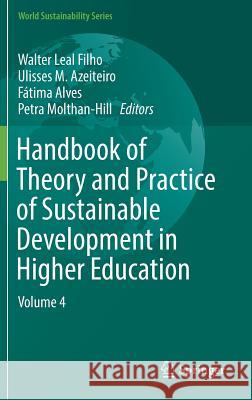Handbook of Theory and Practice of Sustainable Development in Higher Education: Volume 4 » książka
topmenu
Handbook of Theory and Practice of Sustainable Development in Higher Education: Volume 4
ISBN-13: 9783319478760 / Angielski / Twarda / 2017 / 540 str.
Kategorie:
Kategorie BISAC:
Wydawca:
Springer
Seria wydawnicza:
Język:
Angielski
ISBN-13:
9783319478760
Rok wydania:
2017
Wydanie:
2017
Numer serii:
000763600
Ilość stron:
540
Waga:
0.94 kg
Wymiary:
23.39 x 15.6 x 3.02
Oprawa:
Twarda
Wolumenów:
01
Dodatkowe informacje:
Wydanie ilustrowane











